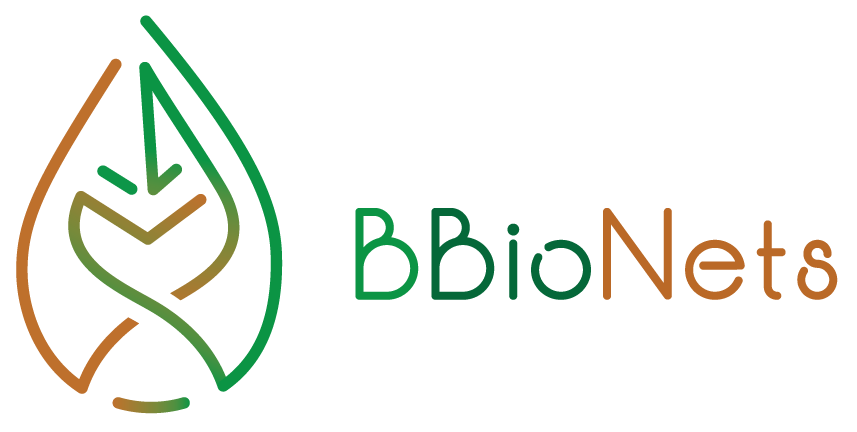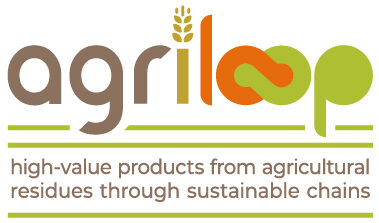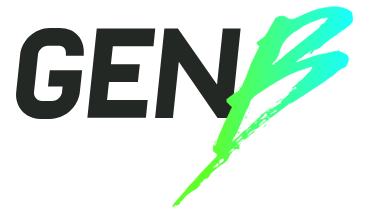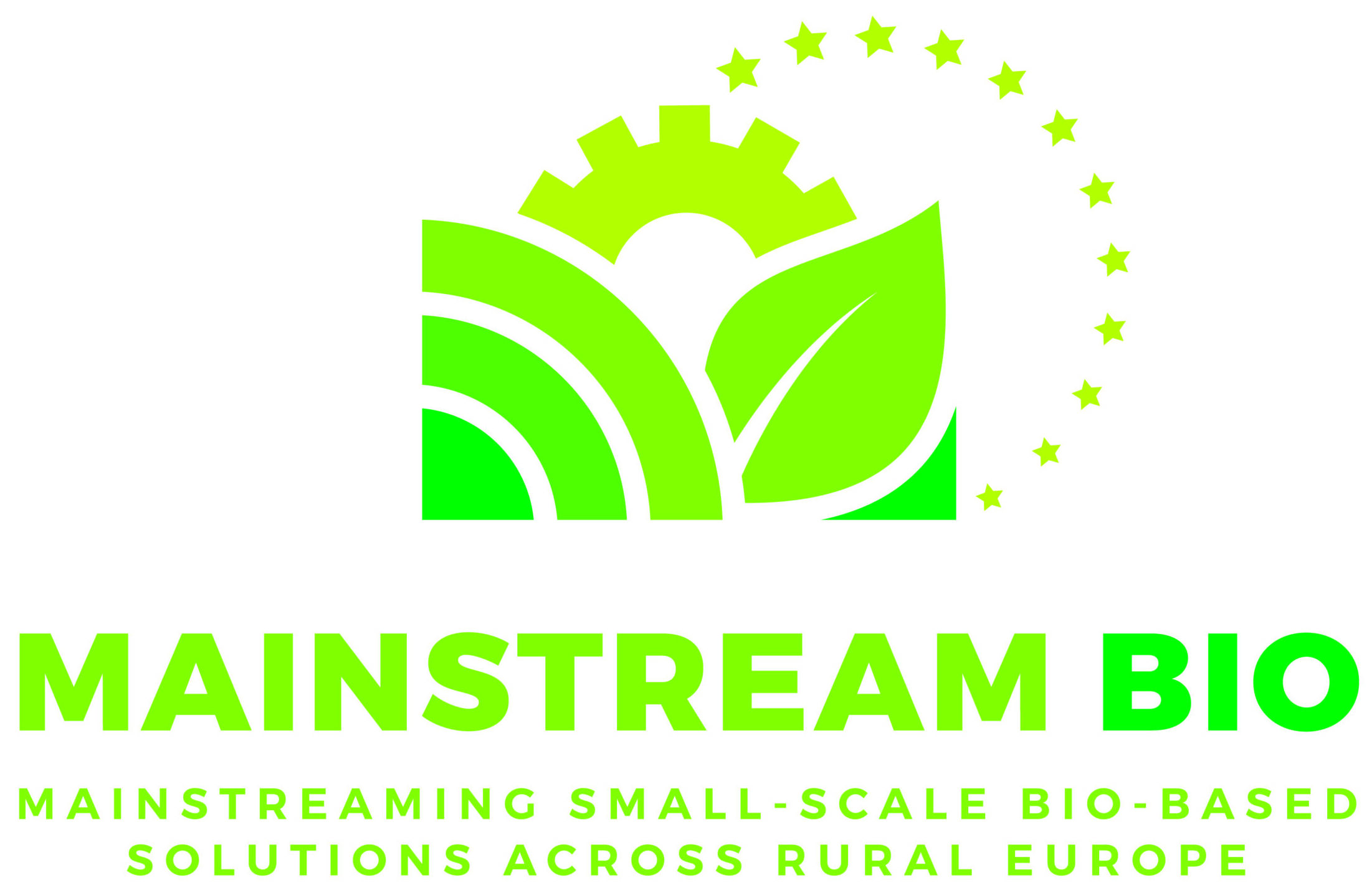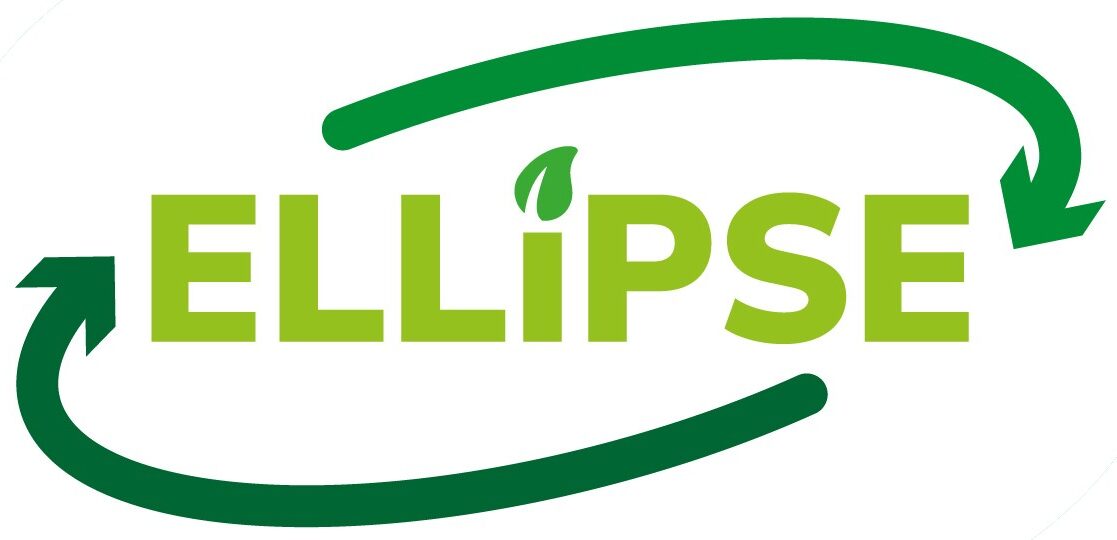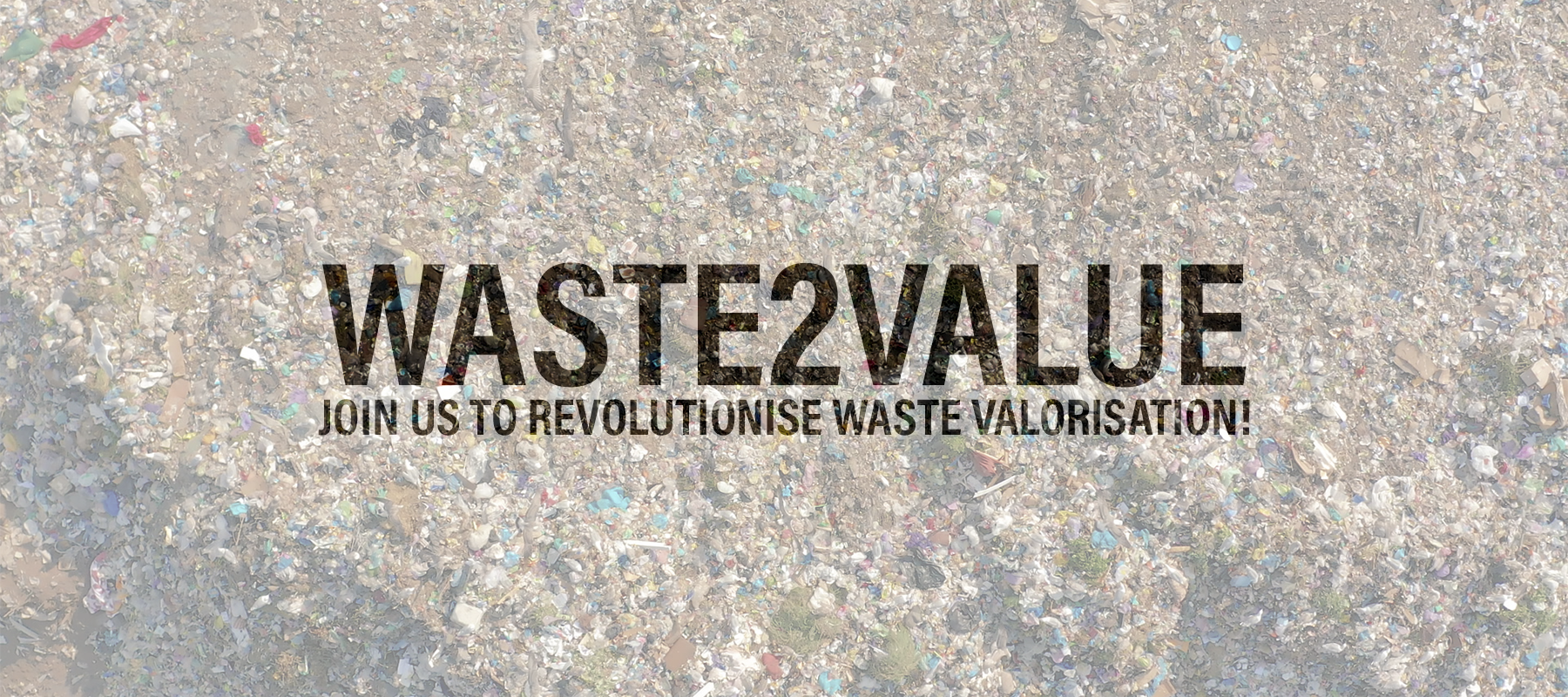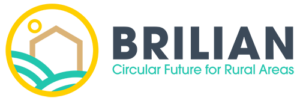Synergies
Robocoop-EU - circulaR bioecOnomy Business mOdels owned by agroCOOPeratives
Large-scale roll-out of the bioeconomy requires the establishment of new cooperative business models involving primary producers and other stakeholders. Implemented in three regions – Extremadura, Spain; Apulia, Italy; and West Macedonia, Greece, it proposes circular regional business models for the use of waste streams from three agricultural sectors: grape, olive and stone fruit cultivation.
Robocoop-EU is Brilian Sister Project and together will establish a collaboration in order to promote knowledge transfer, methodology share, and joint communication and dissemination actions.
Large-scale roll-out of the bioeconomy requires the establishment of new cooperative business models involving primary producers and other stakeholders. Implemented in three regions – Extremadura, Spain; Apulia, Italy; and West Macedonia, Greece, it proposes circular regional business models for the use of waste streams from three agricultural sectors: grape, olive and stone fruit cultivation.
Robocoop-EU is Brilian Sister Project and together will establish a collaboration in order to promote knowledge transfer, methodology share, and joint communication and dissemination actions.
BioeconomyVentures - Raising Disruptive Bioeconomy Ventures, Start-ups and Spin-offs to the Top
The BioeconomyVentures project will establish the definitive reference platform for bioeconomy-based start-ups and spinoffs seeking to access finance and business insights. It aims at creating an entrepreneurial ecosystem within the bio-based industry sector by offering support, brokerage and networking services to the relevant stakeholders.
Both projects will establish a collaboration in order to provide to primary producers a potential tool to connect with technology providers and funding opportunities, promote knowledge transfer, and joint communication and dissemination actions.
The BioeconomyVentures project will establish the definitive reference platform for bioeconomy-based start-ups and spinoffs seeking to access finance and business insights. It aims at creating an entrepreneurial ecosystem within the bio-based industry sector by offering support, brokerage and networking services to the relevant stakeholders.
Both projects will establish a collaboration in order to provide to primary producers a potential tool to connect with technology providers and funding opportunities, promote knowledge transfer, and joint communication and dissemination actions.
BBioNets - Boosting the adoption of Bio-Based Technologies
BBioNets is a thematic network that relies on, promotes and further advances the work carried out by EIP-AGRI Operational Groups (OGs) with respect to the management and/or processing of agricultural and forest biomass with BBTs. Its objective is to incite primary producers all over Europe to embrace and adopt BBTs that will enable them to reduce GHG emissions, make better use of underutilised biomass, create new diversified incomes, reduce costs through circular practices, increase farm/forest sustainable management, and create/develop new value chains.
Both projects will establish a collaboration in order to promote knowledge transfer, methodology share, and joint communication and dissemination actions.
BBioNets is a thematic network that relies on, promotes and further advances the work carried out by EIP-AGRI Operational Groups (OGs) with respect to the management and/or processing of agricultural and forest biomass with BBTs. Its objective is to incite primary producers all over Europe to embrace and adopt BBTs that will enable them to reduce GHG emissions, make better use of underutilised biomass, create new diversified incomes, reduce costs through circular practices, increase farm/forest sustainable management, and create/develop new value chains.
Both projects will establish a collaboration in order to promote knowledge transfer, methodology share, and joint communication and dissemination actions.
Agriloop - High-value products from agricultural residues through sustainable chains
Agricultural-food residues are an underexploited resource for the European Union and China and by making better use of these can bring significant economic, environmental and societal benefits. AgriLoop is a major European Union, UK Research and Innovation and Chinese-funded project finding new ways to convert agricultural-food residues into high-value, eco-friendly products, such as food and feed ingredients and bio-based materials. 35 partners across Europe and China, are joining forces in AgriLoop to increase agricultural sustainability, grow the bioeconomy and tackle climate change and plastic pollution and increase European / Chinese cooperation.
The project has received funding from the European Union’s Horizon Europe research and innovation programme and the UK Research and Innovation fund under the UK government’s Horizon Europe funding guarantee, grant agreement No. 101081776.
Both projects will establish a collaboration in order to promote knowledge transfer, methodology share, and joint communication and dissemination actions.
Agricultural-food residues are an underexploited resource for the European Union and China and by making better use of these can bring significant economic, environmental and societal benefits. AgriLoop is a major European Union, UK Research and Innovation and Chinese-funded project finding new ways to convert agricultural-food residues into high-value, eco-friendly products, such as food and feed ingredients and bio-based materials. 35 partners across Europe and China, are joining forces in AgriLoop to increase agricultural sustainability, grow the bioeconomy and tackle climate change and plastic pollution and increase European / Chinese cooperation.
The project has received funding from the European Union’s Horizon Europe research and innovation programme and the UK Research and Innovation fund under the UK government’s Horizon Europe funding guarantee, grant agreement No. 101081776.
Both projects will establish a collaboration in order to promote knowledge transfer, methodology share, and joint communication and dissemination actions.
GenB - Generation Bioeconomy
The aim of the project is to raise awareness on Bioeconomy building on communication and education that encourage and reward young BIOVOICES to take a role in steering the transition towards more sustainable lifestyles. The project will therefore involve young people with the overall objective of inspiring and encouraging future generations to demonstrate awareness, sensitivity, and interest in environmental issues, sustainability, and circularity.
Young generations are the key drivers of sustainable development, which is why it is important to educate and empower young people for their role in the circular and sustainable bio-economy. In this context, and in cooperation with young people, parents, and teachers, GenB will produce educational toolkits focusing on the bio-economy and bio-sectors. In order to maximise the impacts of the project, GenB will involve all citizens, create synergies with other initiatives and consolidate its educational model.
Launched in November 2022, GenB is a 30-month project focused on bioeconomy and funded by the EU Horizon Europe research & innovation programme (https://cordis.europa.eu/project/id/101060501).
Both projects will establish a collaboration in order to promote knowledge transfer, methodology share, and joint communication and dissemination actions.
The aim of the project is to raise awareness on Bioeconomy building on communication and education that encourage and reward young BIOVOICES to take a role in steering the transition towards more sustainable lifestyles. The project will therefore involve young people with the overall objective of inspiring and encouraging future generations to demonstrate awareness, sensitivity, and interest in environmental issues, sustainability, and circularity.
Young generations are the key drivers of sustainable development, which is why it is important to educate and empower young people for their role in the circular and sustainable bio-economy. In this context, and in cooperation with young people, parents, and teachers, GenB will produce educational toolkits focusing on the bio-economy and bio-sectors. In order to maximise the impacts of the project, GenB will involve all citizens, create synergies with other initiatives and consolidate its educational model.
Launched in November 2022, GenB is a 30-month project focused on bioeconomy and funded by the EU Horizon Europe research & innovation programme (https://cordis.europa.eu/project/id/101060501).
Both projects will establish a collaboration in order to promote knowledge transfer, methodology share, and joint communication and dissemination actions.
Mix-Matters From Waste to Wealth
The MIXMATTERS project aims to establish and showcase the MixMatters Integrated System, which involves the separation and valorisation of three different types of mixed bio-waste streams from the agri-food industry. These streams may contain impurities such as plastics, cardboard, or metals. The goal is to produce six valuable outputs, including powder ingredients, sugar concentrates, recombinant proteins, green fibres, bioactive compounds, and plastic monomers. The performance of the Integrated System will be demonstrated in three locations in Spain, specifically two in Valencia and one in the Almeria regions.
This project is supported by the Circular Bio-based Europe Joint Undertaking and its members under grant agreement No 101112409 (HORIZON-JU-CBE-2022 ).
Both projects will establish a collaboration in order to promote knowledge transfer, methodology share, and joint communication and dissemination actions.
The MIXMATTERS project aims to establish and showcase the MixMatters Integrated System, which involves the separation and valorisation of three different types of mixed bio-waste streams from the agri-food industry. These streams may contain impurities such as plastics, cardboard, or metals. The goal is to produce six valuable outputs, including powder ingredients, sugar concentrates, recombinant proteins, green fibres, bioactive compounds, and plastic monomers. The performance of the Integrated System will be demonstrated in three locations in Spain, specifically two in Valencia and one in the Almeria regions.
This project is supported by the Circular Bio-based Europe Joint Undertaking and its members under grant agreement No 101112409 (HORIZON-JU-CBE-2022 ).
Both projects will establish a collaboration in order to promote knowledge transfer, methodology share, and joint communication and dissemination actions.
MainstreamBIO
MainstreamBIO is an EU funded (Horizon Europe) project which sets out to get small-scale bio-based solutions into mainstream practice across rural Europe, by offering innovative digital tools which will enhance the engagement of key rural actors and create sustainable value chains and business models supporting the development of the EU bioeconomy.
MainstreamBIO aims to support the deployment of small-scale bio-based solutions across EU’s rural regions by: (1) establishing regional Multi-actor Innovation Platforms (MIPs) in 7 EU countries (NL, PL, DK, SE, BG, ES, IE), each with a variety of feedstocks, infrastructure, and expertise, in the aim of co-creating sustainable business model pathways in line with regional potentials and policy initiatives and (2) providing free of charge innovation support services (both technical and business) and an open for all Digital Toolkit.
Both projects will establish a collaboration in order to promote knowledge transfer, methodology share, and joint communication and dissemination actions.
MainstreamBIO is an EU funded (Horizon Europe) project which sets out to get small-scale bio-based solutions into mainstream practice across rural Europe, by offering innovative digital tools which will enhance the engagement of key rural actors and create sustainable value chains and business models supporting the development of the EU bioeconomy.
MainstreamBIO aims to support the deployment of small-scale bio-based solutions across EU’s rural regions by: (1) establishing regional Multi-actor Innovation Platforms (MIPs) in 7 EU countries (NL, PL, DK, SE, BG, ES, IE), each with a variety of feedstocks, infrastructure, and expertise, in the aim of co-creating sustainable business model pathways in line with regional potentials and policy initiatives and (2) providing free of charge innovation support services (both technical and business) and an open for all Digital Toolkit.
Both projects will establish a collaboration in order to promote knowledge transfer, methodology share, and joint communication and dissemination actions.
C4B - Circular Bio-Based Business models to create high-value Bio-based products in integrated value chains
Primary production in agriculture and forestry represents an essential part of the European circular bioeconomy. However, the involvement of primary producers in the circular bio-based economy is still limited, and the benefits are in most cases not fairly distributed along the value chain, to the disadvantage of primary producers. Fair and sustainable business models that create opportunities for rural entrepreneurship and develop new forms of successful rural business are therefore needed.
C4B business models will be designed to balance the share of power and profits across novel bio-based value chains to accelerate the development of rural communities and their economic viability and enhance the cooperation among farmers, foresters and industry.
Both projects will establish a collaboration in order to promote knowledge transfer, methodology share, and joint communication and dissemination actions.
Primary production in agriculture and forestry represents an essential part of the European circular bioeconomy. However, the involvement of primary producers in the circular bio-based economy is still limited, and the benefits are in most cases not fairly distributed along the value chain, to the disadvantage of primary producers. Fair and sustainable business models that create opportunities for rural entrepreneurship and develop new forms of successful rural business are therefore needed.
C4B business models will be designed to balance the share of power and profits across novel bio-based value chains to accelerate the development of rural communities and their economic viability and enhance the cooperation among farmers, foresters and industry.
Both projects will establish a collaboration in order to promote knowledge transfer, methodology share, and joint communication and dissemination actions.
SYMBA
The SYMBA project aims at creating a new and innovative Industrial Symbiosis (IS) methodology to be replicated within EU according to the local/regional bio-based industrial ecosystem. SYMBA will implement a user-friendly and accessible AI database suggesting regional IS innovative processes to create zero-waste value chains, ensuring more local supply chains, a better distribution of economic and social benefits among the stakeholders and an increase in the economic value of final products.
Both projects will establish a collaboration in order to promote knowledge transfer, methodology share, and joint communication and dissemination actions.
The SYMBA project aims at creating a new and innovative Industrial Symbiosis (IS) methodology to be replicated within EU according to the local/regional bio-based industrial ecosystem. SYMBA will implement a user-friendly and accessible AI database suggesting regional IS innovative processes to create zero-waste value chains, ensuring more local supply chains, a better distribution of economic and social benefits among the stakeholders and an increase in the economic value of final products.
Both projects will establish a collaboration in order to promote knowledge transfer, methodology share, and joint communication and dissemination actions.
PRIMED - Redesigning the Primary Sector for Maximizing Bioeconomy Development
PRIMED will co-create innovative Circular Business Models (CBM) in the bioeconomy with a multi-actor approach, integrating primary producers into novel bioeconomy value chains. This effort seeks to boost primary production, reduce costs, and contribute to European industrial sustainability, competitiveness, and resource independence.
Both projects will establish a collaboration in order to promote knowledge transfer, methodology share, and joint communication and dissemination actions.
PRIMED will co-create innovative Circular Business Models (CBM) in the bioeconomy with a multi-actor approach, integrating primary producers into novel bioeconomy value chains. This effort seeks to boost primary production, reduce costs, and contribute to European industrial sustainability, competitiveness, and resource independence.
Both projects will establish a collaboration in order to promote knowledge transfer, methodology share, and joint communication and dissemination actions.
ELLIPSE - Valorising organic waste streams from the slaughterhouse and the paper industries into high-added value products
The project will address the valorisation of two heterogeneous waste streams generated in significant amounts in Europe, slaughterhouse waste (bellygrass or rumen content) and paper and pulp sludge, to produce cost-efficient polyhydroxyalkanoates (PHAs) for agricultural and personal care applications, by the coprocessing with other organic wastes (OW) such as sludge from the dairy industry and glycerol from the biodiesel industry, as well as recovering nutrients to produce bio-based fertilizers (BBFs). The integration of these waste streams as biorefinery feedstocks will allow reducing the volumes of landfilled waste, opening new avenues for platform chemicals and bioplastics production while creating additional revenue for the related industries generating them, with added advantages of water recycling, decreased soil degradation, groundwater pollution and methane emissions.
Both projects will establish a collaboration in order to promote knowledge transfer, methodology share, and joint communication and dissemination actions.
The project will address the valorisation of two heterogeneous waste streams generated in significant amounts in Europe, slaughterhouse waste (bellygrass or rumen content) and paper and pulp sludge, to produce cost-efficient polyhydroxyalkanoates (PHAs) for agricultural and personal care applications, by the coprocessing with other organic wastes (OW) such as sludge from the dairy industry and glycerol from the biodiesel industry, as well as recovering nutrients to produce bio-based fertilizers (BBFs). The integration of these waste streams as biorefinery feedstocks will allow reducing the volumes of landfilled waste, opening new avenues for platform chemicals and bioplastics production while creating additional revenue for the related industries generating them, with added advantages of water recycling, decreased soil degradation, groundwater pollution and methane emissions.
Both projects will establish a collaboration in order to promote knowledge transfer, methodology share, and joint communication and dissemination actions.
WASTE2VALUE
In the EU, 2.1 billion tonnes of waste are generated each year. To address this, the EU has established ambitious targets for reducing landfill use and increasing recycling efforts, particularly focusing on packaging waste to minimize its environmental impact. The overarching aim is to encourage the transition toward more sustainable value chains, spanning from the primary sector to the marketplace, in support of a circular economy.
The Waste2Value Cluster formed by the three EU-funded projects ELLIPSE, MixMatters and BRILIAN aims to promote the conversion of various waste streams into valuable bio-products, including bio-plastics, bio-based fertilizers, and ingredients. It emphasizes circular, sustainable business models and resource efficiency to achieve this goal.
The three established a collaboration in order to promote knowledge transfer, methodology share, and joint communication and dissemination actions.
In the EU, 2.1 billion tonnes of waste are generated each year. To address this, the EU has established ambitious targets for reducing landfill use and increasing recycling efforts, particularly focusing on packaging waste to minimize its environmental impact. The overarching aim is to encourage the transition toward more sustainable value chains, spanning from the primary sector to the marketplace, in support of a circular economy.
The Waste2Value Cluster formed by the three EU-funded projects ELLIPSE, MixMatters and BRILIAN aims to promote the conversion of various waste streams into valuable bio-products, including bio-plastics, bio-based fertilizers, and ingredients. It emphasizes circular, sustainable business models and resource efficiency to achieve this goal.
The three established a collaboration in order to promote knowledge transfer, methodology share, and joint communication and dissemination actions.
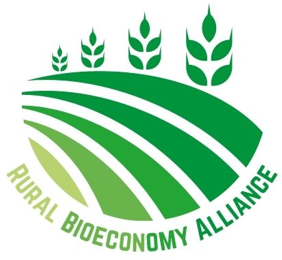
RURAL BIOECONOMY ALLIANCE
Launched on 31 May 2023, the Rural Bioeconomy Alliance (RBA) is a cluster of European-funded projects aimed at accelerating and supporting the development of circular rural Bioeconomy initiatives in the EU.
The goal of the cluster is to speed up growth of bioeconomy by sharing knowledge on project outcomes and supporting dissemination and communication activities related to the existing knowledge of bioeconomy.
The Cluster established a collaboration in order to promote knowledge transfer, methodology share, and joint communication and dissemination actions. The cluster also benefits from technical insights and feedback from the sector, supports discussions on policy recommendations for the European Commission, and fosters collaboration to advance circular rural bioeconomy initiatives in the EU for a sustainable future.
Launched on 31 May 2023, the Rural Bioeconomy Alliance (RBA) is a cluster of European-funded projects aimed at accelerating and supporting the development of circular rural Bioeconomy initiatives in the EU.
The goal of the cluster is to speed up growth of bioeconomy by sharing knowledge on project outcomes and supporting dissemination and communication activities related to the existing knowledge of bioeconomy.
The Cluster established a collaboration in order to promote knowledge transfer, methodology share, and joint communication and dissemination actions. The cluster also benefits from technical insights and feedback from the sector, supports discussions on policy recommendations for the European Commission, and fosters collaboration to advance circular rural bioeconomy initiatives in the EU for a sustainable future.
THE BRILIAN NEWSLETTER
Are you interested in the primary sector and its challenges? Do you want to know more about sustainable cooperative business models and the agricultural by-products valorisation? Do you wish to receive more details about the technologies and high-value products that we are developing in our Pilots? We write regular Newsletters, highlighting BRILIAN relevant activities, events and news.



